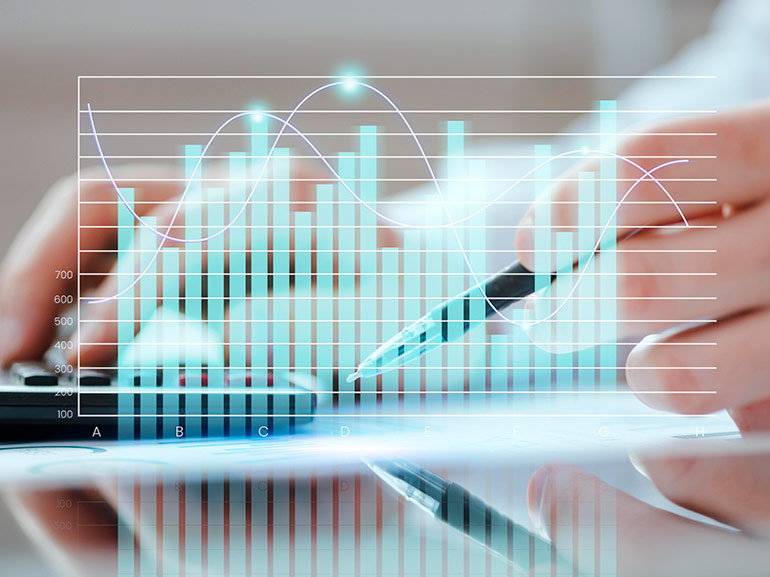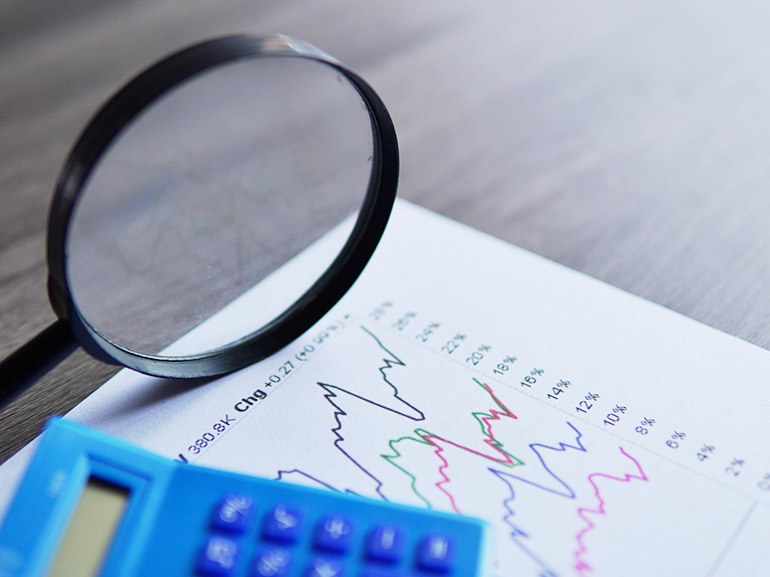Market Capitalisation Explained: What Is Market Cap?
Whether you’re a trader or simply a stock market fanatic, knowing a company’s value is essential to your trading strategy. It can help you develop a nuanced perception of the overall market. This is where market capitalisationmarket capitalization comes into play. In this article, we’ll look into what market cap means, how it’s calculated, what affects it, and why it’s important.

TL;DR
Market cap is the total value of a company's stock, calculated by multiplying its share price by the total number of shares.
To calculate the market cap, multiply the share price by the number of outstanding shares.
The different types of market caps are small-cap, medium-cap, and large-cap.
Market cap is a key measure of a company's value and can help guide investment and trading decisions.
Industry demand, economic conditions, and market sentiment can affect the market cap.
As of 2025, some of the biggest companies by market cap include Apple, Microsoft, Nvidia, Amazon, Meta, and Tesla.
What Is Market Cap?
Market capitalisation, or “market cap,” is the total value of a publicly traded company's shares of stock. Investors can use a company’s market capitalisation to evaluate its value and size instead of using total sales or asset figures. (Source: Fool.com)
How to Calculate the Market Cap
To calculate a company’s market cap, one can multiply the company’s total shares by its current market price per share. For example, if a company’s share price is $10 and its total number of outstanding shares is 500 million, its market capitalisation would be $5 billion.
Market Cap Calculation Example
Let’s take the market capitalisation of a company called X as an example. If Company X has a share price of $50 and 100 million outstanding shares, its market capitalisation would be $5 billion. This figure represents the total value of all the company's shares of stock and is commonly used to assess the company's size and overall market value.
However, it is also worth noting that market cap does not solely pertain to companies; it can also be applied to other financial instruments like commodities.
Types of Market Capitalization
Companies’ and financial assets’ market cap can be segmented into 3 main categories or sizes; small-cap, medium-cap, and large-cap companies.
Big tech companies like Microsoft, Apple, Alphabet, and NVIDIA are considered some of the biggest market-cap stocks in the S&P 500 Index, while companies like American semiconductor design company Ambarella (AMBA) are categorized as mid-cap stocks (Source: Investopedia)
Why Is Market Cap Important?
Market capitalisation is important for a variety of reasons. First, it’s a widely-acceptable way to measure a financial instrument’s value. This means that by looking at, for instance, Apple's market cap individually, one can assess if it's worth trading or investing in. When looking at a company’s market cap in comparison to another, one can plan their trading strategy accordingly and weigh out which share is more worthy of trading CFDs on and when to buy or sell a certain share CFD. The same thought process can be adopted when comparing different cryptocurrencies and market indices.
What Affects a Company’s Market Cap?
Various factors come into play when discussing market capitalization. Below are some of the variables affecting companies' market caps.
Industry Demand
How needed and attractive an industry is can affect how the company is valued. If a company operates in a hot industry, it will likely be more in demand and, thus, more valuable to investors.
General Economy
In times of economic uncertainty and turmoil, like the one that has been prevailing in markets around the globe recently, investors' appetites tend to dwindle, and companies that are considered high-risk assets tend to underperform, thus, they become less valuable. h
Market Sentiment and Perception
The way companies perceive the market can impact the value of the company and its entire industry. When a risk-averse mood takes over the market, companies that are not categorised as safe-haven stocks tend to depreciate in their value as investors tend to go for more safe-haven investments.
High vs. Low Market Cap: The Meaning
Perhaps unsurprisingly, higher market caps indicate a more prominent market presence and are often found in more established companies. In contrast, lower market caps, which tend to suit start-ups, can mean that the company needs more time to get established and more expensive financing.
2025’s Biggest 20 Companies By Market Cap
As of April 2025, the following are the top 20 companies by market cap:
Saudi Aramco
Conclusion
Market capitalisation is a crucial metric for traders, investors, and anyone interested in understanding a company’s true value. By calculating a company's market cap, one can gauge its size, stability, and the potential risks and rewards it may offer. Whether you're comparing industry giants like Apple and Microsoft or evaluating emerging companies in sectors like AI or healthcare, the market cap provides a clearer picture of where to place investments. With the ever-changing economic conditions and market trends, understanding the components that influence market cap—like industry demand, economic climate, and market sentiment—can help guide more informed decisions. The market cap remains a key tool in any investor's strategy, offering insights into both individual companies and entire sectors, making it indispensable in today’s financial landscape.
FAQs:
What does market capitalisation represent?
Market capitalisation represents the total value of a publicly traded company’s outstanding shares. It’s calculated by multiplying the company’s stock price by the total number of shares in circulation.
What are the different types of market cap?
Market capitalisation is typically divided into three categories: large-cap (a market cap that exceeds $10 billion), mid-cap (a market cap between $2 billion and $10 billion), and small-cap (a market cap ranging from $250 million to $2 billion).
How can market capitalisation affect investment decisions?
Investors often use market capitalisation to determine the risk and stability of an investment. Large-cap stocks are generally considered more stable, while small-cap stocks may offer higher growth potential but come with greater risk.
Can market capitalisation change over time?
Yes, market capitalisation can fluctuate due to changes in the company’s stock price or the number of shares outstanding, which may be impacted by new stock issuances, buybacks, or other corporate actions.







